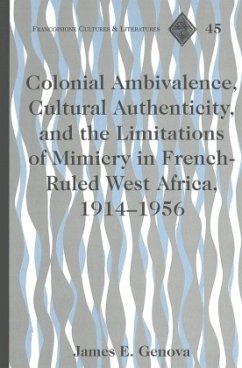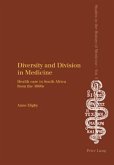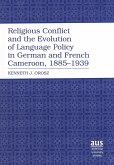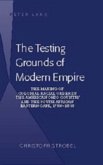Colonial Ambivalence, Cultural Authenticity, and the Limitations of Mimicry in French-Ruled West Africa, 1914-1956 offers an innovative and provocative reassessment of the history and legacies of French colonial rule in West Africa between the First World War and the late 1950s. Making critical use of postcolonial and cultural theory, James E. Genova argues that the colonizers and the colonized were locked in a struggle for authority increasingly structured by competing notions of what it meant to be French or African. This book breaks new ground by demonstrating the centrality of the cultural question in the imperial encounters between France and West Africa. It maps the emergence of the French-educated elite as a social class in French West Africa as a window into the complex relationship between agency and structural context in the making of history. A disjunction developed between decolonization and liberation in the colonial liaison of France and West Africa that left colonizers and colonized trapped in a neocolonial cultural framework actualizing Frantz Fanon's deepest fears about the postcolony.
«This is the fascinating story of the European-educated Africans shipwrecked by the colonial situation. One view held by some of the colonized as well as the colonizers saw this bicultural elite as making 'the scaffolding of the structure' being built in Greater France. But in the eyes of other members of each society, these évolué were 'stranded between two societies'. If we want to understand today's crisis of the African state and France's ambivalences about their immigrants - brilliantly, Genova explains the links - this book is a must-read.» (Herman Lebovics, Author of 'True France and Imperial Republic')
«'Colonial Ambivalence, Cultural Authenticity, the Limitations of Mimicry in French-Ruled West Africa, 1914-1956' is an innovative historical inquiry into French colonialism in Africa. The book is a comprehensive analysis of how the Federation of French West Africa achieved independence and how France was in turn transformed by its imperial encounters with Africa. Emphasizing the construction of African and French identities, the Western-educated African elite straddled the complicated boundaries of colonizer and colonized, citizen and subject, France and Africa. Drawing from historical sociology and postcolonial theory, Genova critically interrogates the tensions among notions of citizenship, culture, race, and empire. In lucid language, he shows how these themes reinforced the power of the Francophone West African elite. His detailed analyses of elite formation, decolonization, and the construction of national identities provides critical historical insight into recent political developments in France and West African states. Colonial Ambivalence is impressive in its creativity and scope. This sophisticated and impressive scholarship will have a significant impact on African and French studies. Genova has written an excellent monograph in the highest standard of African historical studies.» (Olufemi Vaughan, Professor of African studies and ofHistory, State University of New York, Stony Brook)
«'Colonial Ambivalence, Cultural Authenticity, the Limitations of Mimicry in French-Ruled West Africa, 1914-1956' is an innovative historical inquiry into French colonialism in Africa. The book is a comprehensive analysis of how the Federation of French West Africa achieved independence and how France was in turn transformed by its imperial encounters with Africa. Emphasizing the construction of African and French identities, the Western-educated African elite straddled the complicated boundaries of colonizer and colonized, citizen and subject, France and Africa. Drawing from historical sociology and postcolonial theory, Genova critically interrogates the tensions among notions of citizenship, culture, race, and empire. In lucid language, he shows how these themes reinforced the power of the Francophone West African elite. His detailed analyses of elite formation, decolonization, and the construction of national identities provides critical historical insight into recent political developments in France and West African states. Colonial Ambivalence is impressive in its creativity and scope. This sophisticated and impressive scholarship will have a significant impact on African and French studies. Genova has written an excellent monograph in the highest standard of African historical studies.» (Olufemi Vaughan, Professor of African studies and ofHistory, State University of New York, Stony Brook)







